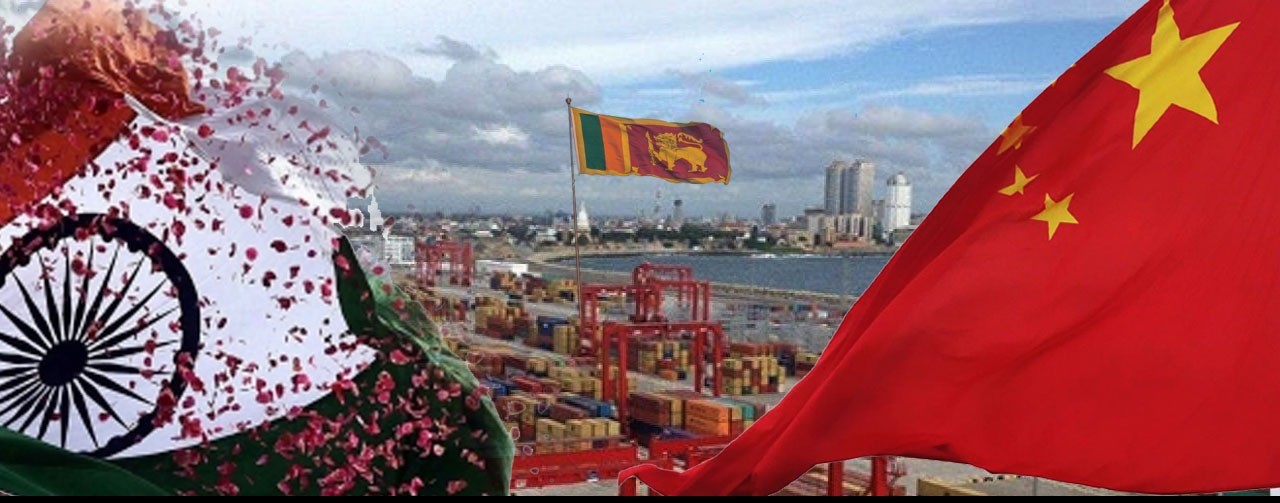A majority of partners in the ruling alliance want the East Container Terminal (ECT) in the Colombo Port vested entirely with the Sri Lanka Ports Authority (SLPA).
They are opposed to ceding the ECT for a joint project with India and Japan.
Port Supply Facilities State Minister Jayantha Samaraweera told the Sunday Times a decision in this regard was made at a joint meeting yesterday.
He said those represented were from the Sri Lanka Freedom Party (SLFP), the Pivithuru Hela Urumaya (PHU), the Lanka Sama Samaja Party, the Democratic Left Front, the Communist Party of Sri Lanka, the Sri Lanka Mahajana Pakshaya, the Ceylon Workers’ Congress, the United People’s Party, the National Congress, the Eelam People’s Democratic Party and the Yuthukama Organisation.
The move came as the Cabinet is set to take a decision on the matter tomorrow. The task of conveying the decision reached at the meeting to Cabinet tomorrow has been entrusted to Ministers Wimal Weerawansa, Vasudewa Nanayakkara and Udaya Gammanpila.
Minister Gammanpila said the representatives who met yesterday agreed that the ECT must be developed fully by the SLPA and must be 100 percent SLPA-owned. “We will request that the Government provide loan facilities from state banks to develop the ECT,” he said. “If that is not possible, then the ECT can be listed on the stock exchange where our citizens will be able to purchase shares.”
The meeting chaired by Minister Weerawansa was held as port sector trade unions threatened to begin an indefinite island-wide strike tomorrow if the Government pushed ahead with the move to give a 49 percent stake in the ECT to India’s Adani Group.
At the Colombo Port, work is already hampered owing to the work-to-rule campaign started by trade unions on Friday. Twenty-three unions are engaged in the campaign, said Prasanna Kalutarage, Port Sector Branch President of the Sri Lanka Nidahas Sewaka Sangamaya, which is affiliated to the SLFP. He added that unions affiliated to all political parties were fighting together over the ECT issue.
Union representatives have agreed on four main proposals and sent them to President Gotabaya Rajapaksa on Friday. The proposals include giving the SLPA written approval to begin operations at the ECT section that has already been developed and presenting a Cabinet paper proposing that operations of the entire ECT be brought under the SLPA.
The trade unions were yesterday continuing with their work-to-rule campaign and will decide tomorrow whether they will convert the work to rule into a strike.
On Friday, the Government gazetted the Port services as an essential service.
Meanwhile, commercial discussions were held between the investors and the Cabinet-Appointed Negotiating Committee (CANC) which will hand over its report to the Minister tomorrow. Its contents will be revealed by the Government, said SLPA Chairman Daya Ratnayake, who pledged that the ongoing dispute would be resolved in a positive manner.
“Everyone is of the opinion that the ECT must be run by the SLPA, not handed over to some other institution or country,” he told the media. This includes the port workers, trade unions, management and the public.
“I am of the view that a proposal to satisfy all their aspirations has been arrived at by the CANC,” he said. “There is the possibility of a Cabinet memorandum being ready by tomorrow.”
The Government had earlier insisted on the SLPA retaining a 51 percent holding in the business. This posed a challenge because, constitutionally, the enterprise would be “State-owned”, making it difficult to run it flexibly.
During talks, the SLPA had high expectations regarding what it would earn from the deal in terms of royalties and other gains. The demand was for several times more income than its revenue from the China-run Colombo International Container Terminal (CICT) which is also in the Colombo Port.
The investors saw this as unreasonable and commercially unfeasible. That is because the ECT will deal with the same customers and offer the same service in the same harbour as the CICT.
The SLPA holds only a 15 percent stake in the CICT. China Merchants Holdings (International) (CMHI) holds the remaining 85 percent. There is, therefore, a “reasonable expectation” that the ECT must yield more for the SLPA.


